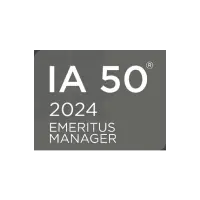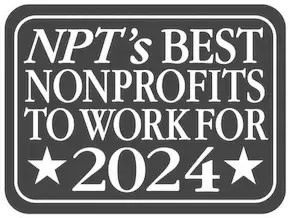Strong Fourth Quarter Propels Capital Impact Partners To Record Year Supporting Underserved Communities
Investments in health, education, and dignified aging projects – as well as impact investing, partnerships, and capacity building – empowered disinvested communities to excel
Arlington, VA (February 26, 2018) – Summing up immense impact for underserved communities in 2017, Capital Impact Partners announced today that it provided more than $67.5 million in financing during the fourth quarter of 2017. This helped the organization reach a record loan volume of $220 million in 2017, as well as $2.5 billion in financing to underserved communities across its history. The fourth quarter also saw several significant developments for Capital Impact – from the launch of its impact investing program to an innovative program development initiative focused on equity– forging opportunities for advancement in disinvested communities.
“2017 was a very fruitful year for Capital Impact, allowing us to promote equity and inclusion for all those we serve,” said Ellis Carr, president and CEO of Capital Impact. “We have simultaneously increased our reach through record-setting lending and strategically extended our scope into innovative community initiatives that help expand shared prosperity. From impact investing that allows socially conscious individuals and organizations to invest in their values to capacity building that gives minority developers the skills and capital to participate in local revitalization, we are moving communities closer to economic, social, and racial justice.”
Capital Impact’s fourth-quarter financing supported projects across several states, including California, Indiana, Louisiana, Michigan, New York, and Washington, D.C. This effort helps increase access to quality health care for vulnerable people including inner-city homeless populations and immigrants; expand access to assisted living for low-income seniors; create new educational opportunities; and construct more affordable places to live in communities across the United States. Capital Impact’s fourth quarter project investments are expected to serve more than 47,621 beneficiaries and create more than 343 permanent and construction-related jobs.
Over the course of 2017, Capital Impact financed projects that created 1,120 jobs for those who live in the communities that Capital Impact serves, and served nearly 263,000 beneficiaries in 2017, a 557 percent increase over the previous year. Our impact in 2017 includes:
- Reaching 200,000 patients – 77 percent of whom are low-income – through 17 new health care facilities;
- Providing more than 45,000 individuals with healthy food options, including more than 30,000 low-income individuals;
- Creating 771 units of housing, 70 percent of which were for low-income individuals and families; and
- Expanding charter school education for 15,227 students – including 11,909 low-income students.
Investing for Social Impact
In addition to its record lending, Capital Impact launched a unique impact investing offering in the fall. The $100 million of ‘AA’* rated fixed-income Capital Impact Investment Notes allow retail and institutional investors the opportunity to contribute to Capital Impact’s nationwide endeavors to create social impact for underserved communities.
Available for as low as $1,000, individual and institutional investors can purchase the Notes through their brokerage accounts. Capital Impact’s Investment Notes follow a trend of CDFIs engaging in impact investing, but the Notes also represent the first time that an impact investing product has been issued by a non-profit to individual and institutional investors, and which is both AA rated by S&P Global and available on a continuous basis. Through the end of 2017, $42 million of the Notes have been sold, making it among the most successful sold in the impact investment space by a non-profit.
Closing out the year, Capital Impact partnered with Annaly Capital Management to embark on a first-of-its-kind $25 million joint venture with the world’s largest REIT, providing direct financing for Capital Impact’s socially responsible projects in low-income communities while simultaneously enabling Capital Impact to further expand its work nationally.
Enhancing Capacity to Address Barriers to Success
Capital Impact launched the Equitable Development Initiative after recognizing that only 10 percent of Capital Impact’s lending to revitalize Detroit communities was going to minority real estate developers.
“Minority developers are often at a disadvantage, as the necessary capital and technical skills for development projects are often out of their reach,” said Melinda Clemons, Capital Impact’s Detroit Market Lead. “We see this initiative as a first step in correcting that.”
With initial support from long-time partner, JPMorgan Chase, this two-year, $5 million program is designed to help minority developers participate in Detroit’s continued economic recovery by providing them with critical training opportunities and access to capital.
Another gap that Capital Impact identified came from listening to charter school administrators express that the school construction process is one of the most daunting aspects of providing quality education to students. In support of their efforts to build or expand high-quality charter school facilities, Capital Impact published The Answer Key, a step-by-step guide to the school construction and financing process.
“Our fourth-quarter lending, combined with our strategic initiatives have made 2017 one of Capital Impact’s most dynamic years yet. We are providing value for communities that traditional lenders leave behind. Programs like the Capital Impact Investment Note and our partnership with Annaly Capital Management will prove invaluable in expanding our ability to quickly and creatively meet the needs of communities and empower them to create jobs and opportunity for those who least often have the chance to break the barriers to success,” said Scott Sporte, Capital Impact’s Chief Lending Officer.
Fourth quarter project highlights include:
Expanding Healthy Food Access
Capital Impact continues to prioritize projects that extend healthy food options within low- and moderate-income communities. Investing in local good food businesses that traditional lenders often ignore creates more healthy food options for marginalized residents while boosting the local economy and creating jobs.
Currently, most Detroit residents travel at least twice as far to reach a full-service grocer as they do to reach a fast food restaurant, convenience store, or gas station. This makes them more reliant on unhealthy food options, leading to poor nutrition and health. To combat this issue, Capital Impact partnered with the Detroit Development Fund (DDF), making it a new intermediary lender for Capital Impact’s Michigan Good Food Fund. DDF will disperse $1 million in loans over the course of five years to support and expand healthy food businesses and programs that target communities in need in Detroit, with a focus on minority-owned and small businesses. Seventy-five percent of the customers in the target area of these investments are low-income. DDF already has several businesses in its pipeline for loans, which will create or retain 54 full-time jobs and expand the number of healthy food options for customers in neighborhoods throughout the city.
The Michigan Good Food Fund is a $30 million loan fund created to finance projects that increase healthy food access and spur economic opportunity in underserved communities in Michigan. It is a collaborative effort between Capital Impact Partners, Fair Food Network, Michigan State University Center for Regional Food Systems, and the W.K. Kellogg Foundation.
Numero Uno, a leading Hispanic-focused supermarket chain based in Southern California, serves a primarily low- to middle-income Latino population (including immigrants and first-generation Americans), a population often marginalized in terms of social services including healthy food access. Numero Uno provides healthy food options for its local Latino community as well as customer education programs to promote healthy food choices and reduce junk food. The supermarket chain also accepts all forms of government aid as payment, and runs food donation campaigns with The Salvation Army for its client base. Capital Impact purchased a $3 million participation in a $12 million loan led by National Cooperative Bank to refinance an existing loan to Numero Uno.
Increasing Access to Health Care
Underserved individuals still struggle to access critical health care services within their communities. These services are vital to living a productive everyday life. In the fourth quarter alone, our programs have supported health care for more than 44,000 patients in six facilities.
Northeast Valley Health Corporation (NEVHC) was created to fill a gap in health care provision for a largely low-income and uninsured population within the San Fernando and Santa Clarita Valleys of Southern California, including homeless men and women, multilingual families, and people living with HIV. Ninety percent of individuals served by the health centers live at or below 200 percent of the federal poverty level. Many rely on Medicaid (Medi-Cal) for their health insurance. Capital Impact supported this returning borrower with $720,000 from its California Primary Care Association (CPCA) Ventures Fund to cover improvements to a new, 8,500 square foot clinic in Van Nuys, where it has moved its adult medical services. The clinic will serve 2,952 patients with primary care, behavioral health services, family planning services, women’s health care (non-OB), chronic disease management, infectious disease care (including HIV and Hepatitis C), and nutrition and health education services. The new Adult Clinic also provides referrals to other specialty care, x-ray services, and dental care.
White Memorial Community Health Center (WMCHC) serves the Boyle Heights neighborhood of Los Angeles, where 66 percent of the population lives below 200 percent of the federal poverty level and 22 percent are uninsured. The area is 88 percent Latino and 90 percent of residents speak a language other than English in their homes (predominantly Spanish). All clients served by the health center are low-income residents. The community suffers from a lack of primary care doctors and a high level of poverty, and has a high number of elderly residents. It is also known for its high health disparities, including an infant mortality rate that is 52 percent and 43 percent higher than L.A. County and the State of California, respectively.
Capital Impact provided $5.2 million in term loans from the Healthier California Fund and the CPCA working capital loan fund to support development of a new non-profit community health center that will increase access to primary and preventative care, behavioral health, and dental services for approximately 20,000 patients. WMCHC will also provide an alternative to the emergency room for low-income residents seeking health care services. This health center will provide crucial health services currently not being well-provided to this underserved community.
Aghaby Comprehensive Community Health Center (Aghaby) received a $200,000 working capital loan from Capital Impact through the CPCA Ventures Fund to hire staff in order to increase operations at its single site in Compton, CA. Aghaby provides healthcare services to a very underserved community in the Los Angeles area. Aghaby’s patient population is predominantly low-income and Latino, with a sizable minority of Black patients. The median household income is $43,500 with 27 percent of the population (and 36 percent of children) living below the federal poverty line. By expanding its personnel, Aghaby can serve 2,950 patients and provide a higher quality of care.
Yehowa Medical Services (YMS) is a small health center in South Los Angeles covering the portion of Los Angeles County with one of the highest concentrations of low-income residents coupled with low Federally Qualified Health Center (FQHC) penetration. YMS’s mission is to provide accessible high-quality medical care and social services regardless of their social, economic or ethnic backgrounds. Capital Impact provided a $300,000 CPCA capital loan for the purchase and installation of dental equipment to expand service provision for the local community.
YMS provides 3,766 patients with a full range of clinical and non-clinical services including medical, behavioral health, alcohol and other drug counseling, psychiatry, STD/HIV testing, nutritional counseling, housing assistance, medical case management, and eligibility assistance. YMS also believes that patient education is crucial to maintaining optimal health. In addition to medical services, YMS provides group classes and teaching sessions. Expanding to provide dental care ensures that the surrounding community has a better opportunity to enjoy the quality of care that they deserve.
To create the new Joshua House Health Center, an FQHC serving the homeless population in Los Angeles’s Skid Row, Los Angeles Christian Health Centers requested $14.8 million from Capital Impact – including $10 million in New Markets Tax Credits – as part of a $25.9 million transaction including the NonProfit Finance Fund, Los Angeles Development Fund, and U.S. Bank Community Development Corporation. The project will be the ground-up construction of a new 23,468 sq. ft. health clinic to replace a much smaller site nearby.
Skid Row has the largest concentration of chronically homeless people in the country, LACHC’s target population. Today, estimates of Skid Row’s population range from 8,000 to 11,000 people. It is a predominantly Black male population, although the number of women and children has increased in recent years. LACHC also serves a large public housing population. The new site will offer primary care, dental, optometry, and mental health, and a broad array of wellness services. The site will serve 7,000 patients, 2,200 more than in the previous facility. Ninety-nine percent of the clientele lives below 200 percent of the federal poverty level, and the expansion of services is vital to the continued health of the community. In addition, the health center will be co-located with a supportive housing facility, which will provide 55 units of permanent housing for homeless individuals.
Twelve miles north of Capital Impact’s Oakland office, another returning client, Lifelong Medical Care (LMC), serves as the only FQHC for 84,000 residents in Richmond, CA, of whom 37,000 live below 200 percent of the federal poverty line. In the vicinity, only 47 percent of the low-income population is being served by a health center. Of those, 75 percent are LifeLong patients. After the only local hospital closed in 2015, urgent care services were especially needed in the community. In addition, there are no safety-net dental services in Richmond.
To provide the community with more and better quality services, LMC was provided a $13.3 million loan – including more than $7.5 million in New Markets Tax Credits – from Capital Impact to replace three current clinics with the William Jenkins Health Center (WJHC) as part of a larger transaction. California Statewide Communities Development Corporation and U.S. Bank also provided funds for the health center. Project financing from Capital Impact will come from the Age Strong fund and the Healthier California Fund. The loan will facilitate the development of a new three-story, 34,784 sq. ft. clinic, which will offer primary care, behavioral health services, dental care, urgent care, a lab, imaging services, and a broad array of wellness services. The clinic is serving 7,400 patients in this high-need area.
Supporting Aging in the Community
Older adults want to be able to age within their communities, among their families and friends. However, assisted living models often do not foster this sense of community. Maintaining community connections is integral to ensuring that older adults can age with dignity and companionship.
In Washington, D.C., Capital Impact provided Community Preservation & Development Corporation (CPDC) with a $650,000 pre-development loan to begin work on a new 168,250 sq. ft. affordable, mixed-use senior housing development called Edgewood V as part of Edgewood Commons, CPDC’s 792-unit property in a rapidly gentrifying neighborhood in NE D.C. Capital Impact supported development of the Edgewood Commons complex.
Within the greater Edgewood Commons community, CPDC is developing a program model to create a seniors’ supportive environment that fosters community living for older adults (60+) through health and wellness programs, supportive services, and social interaction and engagement, intended to create personal autonomy, diversity, and quality independent living for aging in community. The majority of Edgewood V residents plan to come from the surrounding Edgewood Commons complex. Mary’s Center, a local FQHC, will become the primary operator of 15,000 sq. ft. of commercial space for a community center, providing services and fostering community for residents on-site. The remainder of the space will be composed of 180 senior residential units serving 100 percent low-income older adults. The facility is also near local hospitals.
Integral Development, LLC – a minority-owned real estate development and investment firm – plans to construct Oasis at 56th, a new, 160-unit affordable assisted senior living and adult day care facility in Indianapolis which will provide housing and services to primarily low-income residents. The 65-and-older population in Marion County is expected to increase steadily, requiring additional services for seniors in need. Eighty-five percent of units in the facility will be specifically for low-income residents. It will be designed and operated to allow income-qualified seniors to choose assisted living services that they otherwise could not afford. Capital Impact contributed $2 million as part of a $25.7 million transaction. Three hundred construction jobs and 45 permanent jobs will be created through this project.
The building will include a resident care/nursing treatment room, beauty salon, activity rooms, fitness room and medical preparation space, creating a sense of community throughout each day.
Scaling Affordable Housing and Housing Cooperatives
Housing is a critical need for all people. In particular, affordable housing is essential in low-income communities where median incomes may not be high enough to afford traditional housing. Where traditional financial institutions avoid “risky” lending projects that support historically underserved communities, CDFIs step into the breach to ensure that individuals and families have places to call home. In the further quarter of 2017, we created 508 units of housing in three projects.
Terrace Manor is a well-known case in Washington, D.C. The 2.2 acre, 61-unit affordable housing property in DC’s Ward 8 was allowed to fall into disrepair by its previous owner, leaving many low-income families in unlivable conditions including extensive mold and physical safety issues within buildings. The property was reclaimed by the city, and WC Smith became the new developer. Capital Impact has purchased a $2 million participation in a $6.9 million loan led by LISC, to finance the acquisition of Terrace Manor. WC Smith has a long track record of facilitating developments, including the only grocery store in Ward 8.
The site is in the Congress Heights neighborhood, which is isolated from downtown D.C. and has historically been disinvested, with high poverty rates. As of 2010, it was 94 percent African American, with a median household income of approximately $33,000. As such, there is a high demand for affordable housing in the community. The redevelopment of the property will create more than 168 units of housing for low-income residents living below 50 percent of the Area Median Income.
Providing High-Quality Education
Education is an essential element of building opportunity for individuals and communities, directly impacting all other social and economic markers of success. Expanding high-quality charter school education gives children in underserved communities the chance to improve their livelihoods and help shape their own communities of opportunity. Our charter school construction and financing support at the end of 2017 resulted in 3,045 students accessing education within their community.
Ednovate, Inc. is a non-profit in Los Angeles with a mission to educate students to attend college, focusing particularly on first-generation college-bound students. Students at the school are predominantly Latino. Ednovate uses a personalized student-led learning model focusing on college prep, encouraging independence among its students that will prepare them for college and beyond.
To continue providing its students with high-quality education, Capital Impact partnered with the Low Income Investment Fund (LIIF) to provide a $9 million loan as part of a $16 million project to finance a permanent home for Ednovate’s USC Hybrid High School.
USC Hybrid High School was the first Ednovate school to have a graduating class of seniors in 2016; Ednovate’s innovative project-based learning model has led to 100 percent of Ednovate’s first two graduating classes of seniors being accepted to a 2- or 4-year college. Eighty-three percent of the 480 students at the school are eligible for Free and Reduced Lunch, and many will be the first in their family to attend college. The new location of the school also creates a more convenient commute for students in its target area, reducing the burden on students. The project will create 100 construction jobs, retain 33 permanent jobs and create 2 additional permanent jobs.
Equitas Academy continues to serve the Pico-Union community in Los Angeles by expanding its charter school services with another school. Capital Impact provided this returning borrower $4.3 million as part of a $9 million New Markets Tax Credit deal to build a permanent home for Equitas’ third school. The community that Equitas serves is considered highly distressed, with a 35.8 percent poverty rate and 10 percent unemployment. Additionally, 82 percent of students qualify for Free and Reduced Lunch and 85 percent are English Language Learners.
The new 30,000 sq. ft. building will house a middle school, which is currently operating out of another building. The new building will accommodate more students and extend Equitas’ high-quality school instruction. In addition, Equitas serves as a “community hub” by offering classes to parents and professional development opportunities for its staff, another added value for the new building.
In a new and exciting deal, Capital Impact joined Self-Help Credit Union, Reinvestment Fund and Hope Enterprise, providing $3 million as part of a $14.5 million loan to finance the first phase of ground-up construction of a new charter middle school by New Schools for Baton Rouge (NSBR) in Louisiana. The school will be located in one of Baton Rouge’s most disadvantaged neighborhoods, with some of the lowest performing schools in the state. NSBR works to increase access to high-quality schools for students in Baton Rouge. The middle school is in a very low-income area that has no other strong schools. Nearly all students qualify as low-income, outlining the need for additional schools in the area.
In future, the school will serve approximately 1,000 kindergarten-8th grade students. The project is slated to create 200 construction jobs and 101 permanent positions. The new school will be operated by Texas-based charter management organization IDEA Public Schools, Inc., which is highly respected for their educational methods and outcomes, including a 100 percent graduation rate. In June 2016, IDEA was named America’s Best Charter School Network by the National Alliance for Public Charter Schools.
Albany Community Charter School (ACCS) provides kindergarten-8th grade education to 674 students in the south end of Albany, 80 percent of whom are eligible for Free and Reduced Lunch. ACCS focuses on academic achievement and character development by offering a small, safe and structured school environment, an extended school day, a longer school year, English as a Second Language and Special Education Services, and frequent assessments to monitor student progress. Students have outperformed the local district in most grades in both English language arts and mathematics. Capital Impact provided $3.1 million (acting as a co-lender with LIFF, which provided $2.75 million) as part of an $8.9 million transaction allowing ACCS to purchase its elementary school building and create a permanent home for the school.
In Los Angeles’ Boyle Heights neighborhood, Endeavor College Prep (ECP) serves 660 kindergarten-8th grade students. With a 44 percent poverty rate and 13 percent unemployment rate, the neighborhood is characterized as highly distressed. The student body is mostly Hispanic, with many English learners. Ninety-one percent of students in the school are eligible for Free and Reduced Lunch. ECP follows a co-teaching model for K-6; having two teachers in each classroom allows them to break students up into smaller groups to better address individual learning styles, resulting in increased learning outcomes. The school outperforms the L.A. Unified School district and surrounding schools each year.
Capital Impact participated in loans with LIIF, providing $3 million out of nearly $13 million to help ECP acquire its current school facility. For years, ECP had operated its school out of several buildings that it leased from the school district. A permanent, consolidated school site would allow ECP to build a strong, singular culture and more efficiently manage operations. Additionally, the building houses Arts in Action Community charter school, an arts-focused charter high school. Purchasing the building with another school provides ECP’s students with a direct high school option.
Job Options, Inc. (JOI) is a San Diego-based non-profit whose mission is to offer meaningful employment for people with severe physical, mental, or psychiatric disabilities. It contracts with government and commercial entities to provide hospital environmental services, commissary services, food services, laundry services, grounds maintenance services, and administrative services in Southern California, Utah, and Georgia. JOI also provides benefits, job training, and ongoing support programs for its employees. Capital Impact provided JOI with a line of credit to cover costs incurred while waiting for reimbursement for contracts.
###
About Capital Impact Partners: Through capital and commitment, Capital Impact Partners helps people build communities of opportunity that break barriers to success. We deliver strategic financing, incubate new social programs, and provide capacity-building to help ensure that low-to-moderate-income individuals have access to quality health care and education, healthy foods, affordable housing, and the ability to age with dignity. A non-profit community development financial institution, Capital Impact Partners has disbursed more than $2.5 billion to revitalize communities over the past 35 years. Our leadership in delivering financial and social impact has resulted in Capital Impact earning a “AA” rating from S&P Global “AA” and being recognized by Aeris since 2005 for our performance. Headquartered in Arlington, VA, Capital Impact Partners operates nationally, with local offices in Detroit, MI, and Oakland, CA. Learn more at www.capitalimpact.org.






